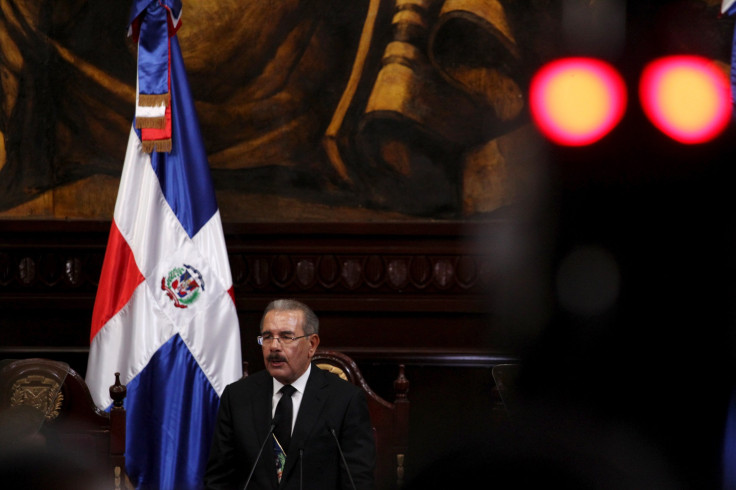Medina Favored In Dominican Election; Economy Beats Graft Claims

Dominican Republic President Danilo Medina is poised to win the first round of a presidential election on Sunday, with polls showing voters crediting him with economic growth and social projects, while less concerned about accusations of graft.
It was unclear whether Medina would get the more than 51 percent of the votes needed to win a new term governing the Caribbean's largest economy, or if he will face a run-off election next month. Results are expected to be known on Monday.
The left-of-center economist has had high popularity ratings during his four-year term in the country of 10.4 million. Electoral rules were changed to allow him to run for a second straight term.
“I won’t be satisfied until progress reaches everyone, when growth means a table full of food for everyone. When a sustainable economy means increasingly more quality jobs and dignified income for the families,” Medina, 64, said at a rally to close his campaign on Thursday.
Medina's Dominican Liberation Party has been continuously in power since 2004. Ideologically, there is little to distinguish him from his main rival, Luis Abinader. The challenger has instead focused on allegations of corruption related to a power plant awarded to Brazilian engineering conglomerate Grupo Odebrecht.
Medina's campaign chief João Santana returned to Brazil in February to face charges Odebrecht had paid him funds siphoned from Brazil's state oil company Petrobras in offshore accounts to finance the 2014 election campaign of suspended Brazilian President Dilma Rousseff.
Medina has yet to refer to the Petrobras scandal, but he did admit the Brazilian political strategist was his top advisor. Santana has called the allegations against him "baseless."
While the Dominican Republic is far wealthier than Haiti, its poor neighbor on the island of Hispaniola, many Dominicans still struggle to satisfy basic needs.
Medina has overseen the repatriation of tens of thousands of people with roots in neighboring Haiti. The policy has popular support but is condemned by human rights groups.
Dominican Republic has the fastest-growing economy in Latin America, with 7 percent growth in 2014 and 2015. Yet poverty rates rose to 41 percent in the first year of Medina's term, according to the World Bank.
High spending on education and health in recent years has won support for the government, and poverty has started to decline.
Tourism has been the stalwart of the beach destination's economy with $167 million in tax revenue alone last year.
© Copyright Thomson Reuters 2024. All rights reserved.











